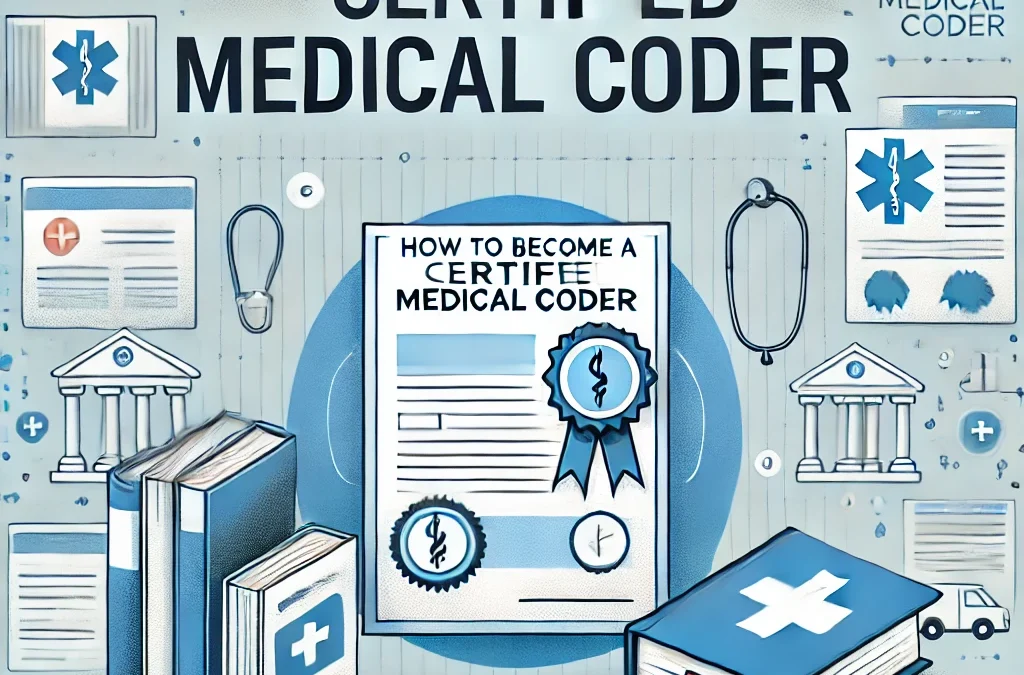How to Become a Certified Medical Coder
Becoming a certified medical coder can open the door to a rewarding career in healthcare. Whether you’re starting fresh or
looking to transition into the field, certification is essential. This guide will take you through the steps to become a certified
medical coder, providing insights and tips for success.
Introduction to Medical Coding and Certification
Medical coding involves translating healthcare services, diagnoses, and procedures into standardized codes used for billing and insurance.
Certification ensures that you possess the skills necessary to perform these tasks accurately and efficiently, making you more desirable to employers.
Key Steps to Becoming a Certified Medical Coder
- Research Certification Options: Find the certification that aligns with your career goals.
- Complete Relevant Coursework: Enroll in medical coding courses to build foundational knowledge.
- Register for a Certification Exam: Prepare to take the CPC, CCS, or CIC exam based on your chosen career path.
Popular Medical Coding Certifications
- Certified Professional Coder (CPC)
- Certified Coding Specialist (CCS)
- Certified Inpatient Coder (CIC)
Each certification focuses on a different aspect of coding, such as outpatient care, inpatient care, or specialized services.
Choosing the Right Certification for Your Career Goals
Decide whether you want to work in outpatient facilities, hospitals, or specialized clinics. This will help you select the most relevant
certification to pursue.
Educational Requirements for Medical Coding Certification
You don’t need a degree to become certified, but most programs require a high school diploma or equivalent. It’s also helpful to
take introductory courses in medical terminology and anatomy.
Preparing for the Certification Exam
- Use study guides and online practice exams to test your knowledge.
- Develop a study schedule to stay on track.
- Practice time management to ensure you can complete the exam on time.
Where to Take the Medical Coding Certification Exam
Many certification bodies offer both online and in-person exam options. Choose the format that suits your schedule and comfort level.
Exam Fees and Financial Aid Options
Certification exams can cost between $300 and $400. Look for scholarships or payment plans to ease the financial burden.
How to Pass the Medical Coding Exam on Your First Attempt
Learn from certified professionals by joining online forums or study groups. Avoid common pitfalls, such as underestimating the
amount of preparation needed.
Career Opportunities After Certification
With a certification, you can apply for roles such as outpatient coder, inpatient coder, or remote medical coding specialist. Many
certified coders enjoy the flexibility of working from home.
Importance of Continuing Education in Medical Coding
Healthcare regulations and coding standards change frequently. Continuing education ensures that you stay updated and maintain your
certification over time.
Conclusion – Your Path to Becoming a Certified Medical Coder
Becoming a certified medical coder is a significant step toward a stable and fulfilling career in healthcare. Follow these steps,
prepare diligently, and you’ll be well on your way to success. Whether you want to work remotely or in a healthcare setting, certification
is your gateway to new opportunities.
FAQs
Do I need a degree to become a certified medical coder?
No, most certifications only require a high school diploma or equivalent.
How long does it take to become certified?
It typically takes between 6 months to 1 year, depending on the program.
Can I work from home as a certified medical coder?
Yes, many certified coders work remotely, especially for insurance companies and healthcare providers.
What are the average salaries for certified medical coders?
Certified coders can earn between $40,000 and $60,000 annually, depending on experience and location.
Is it difficult to pass the medical coding exam?
The exam can be challenging, but with proper preparation, most candidates pass on their first attempt.


Recent Comments